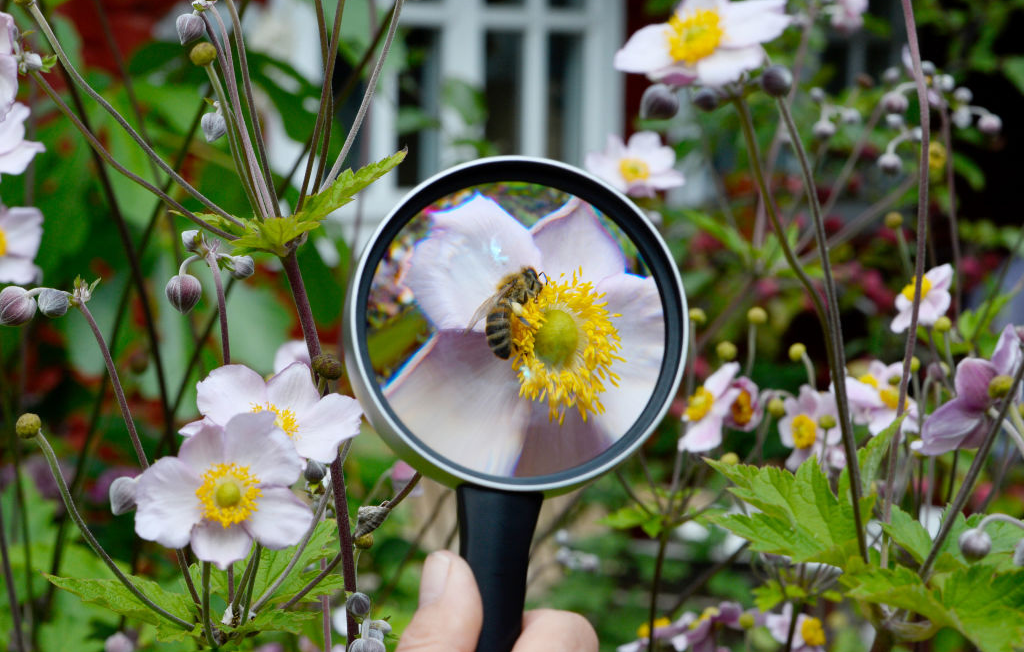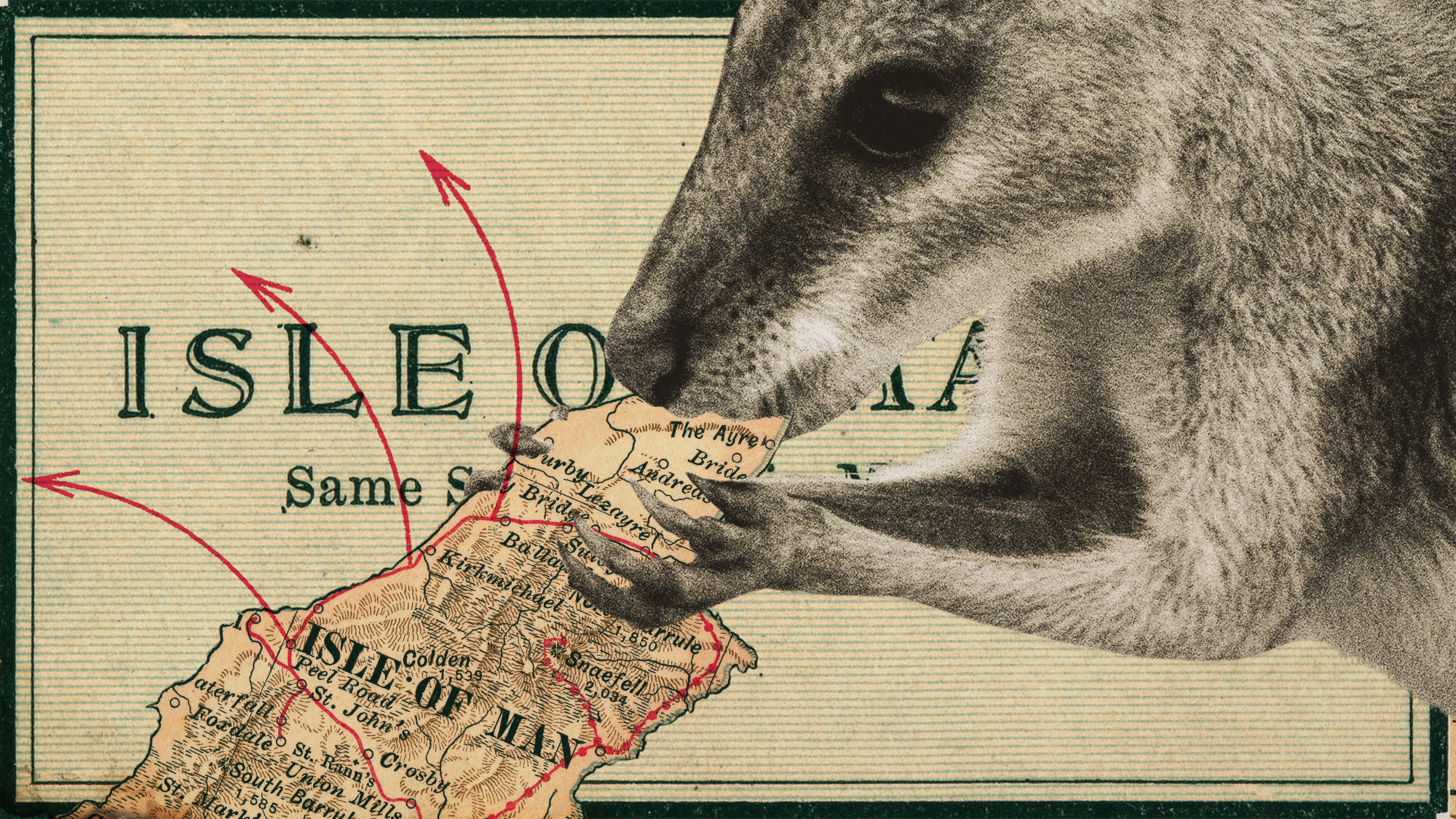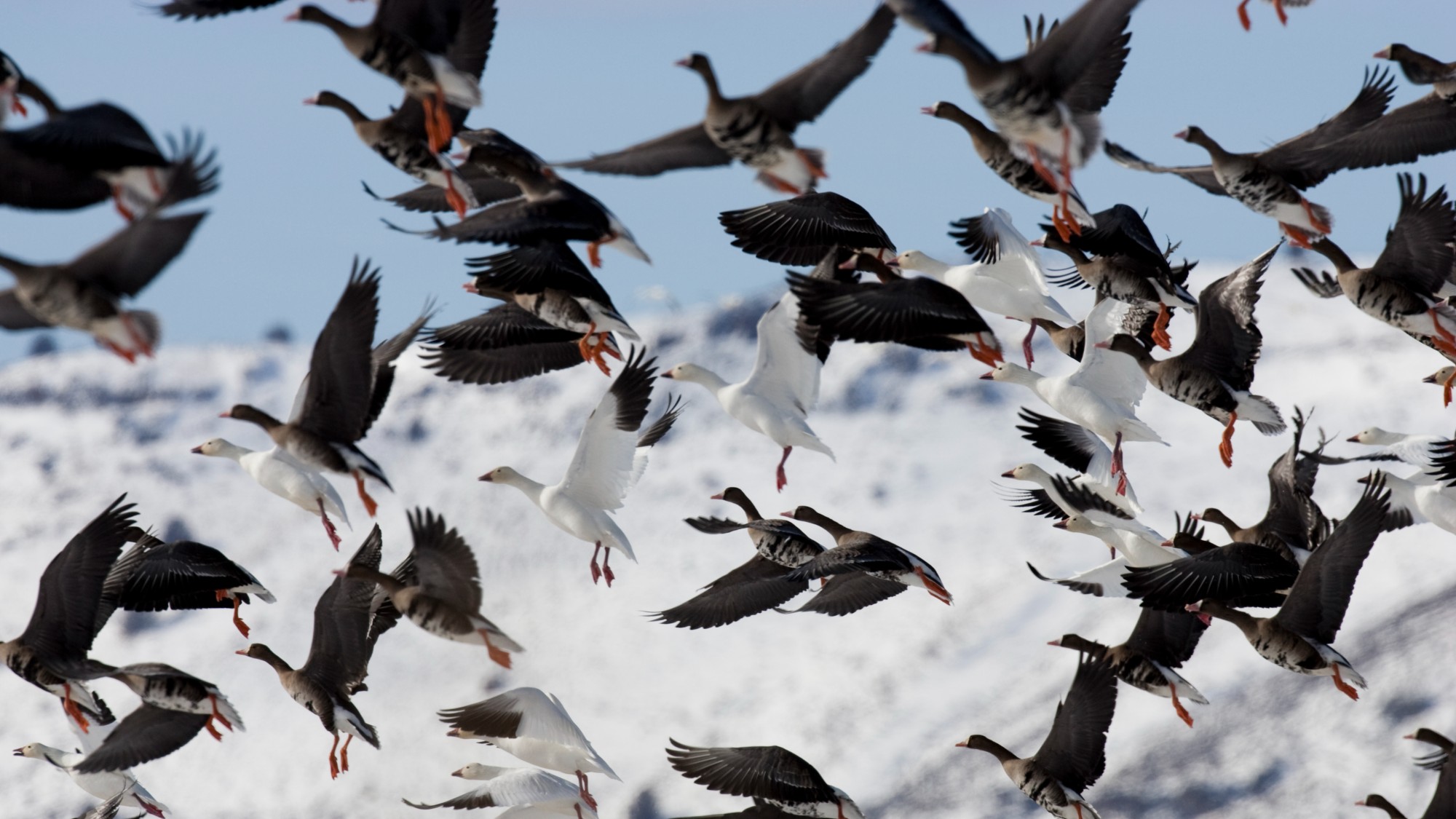Are we experiencing ‘Insectageddon’?
Population decline paints apocalyptic picture for Earth’s ecosystems

A free daily email with the biggest news stories of the day – and the best features from TheWeek.com
You are now subscribed
Your newsletter sign-up was successful
Reports of dramatic declines in insect populations in the last few years have been shared, with the apocalyptic warning that the world is experiencing “insectageddon”.
It’s “hardly surprising there is huge concern” over the idea, said Jane Hill, professor of ecology at the University of York, writing in The Guardian in May, after new survey results revealed that the number of flying insects in Britain has “plunged” by almost 60% since 2004.
The findings, jointly published by charities Buglife and Kent Wildlife Trust, added to an “emerging narrative of severe decline” in insect populations, and built on an idea that “things were better in the past”, said the paper. But how serious is the issue?
The Week
Escape your echo chamber. Get the facts behind the news, plus analysis from multiple perspectives.

Sign up for The Week's Free Newsletters
From our morning news briefing to a weekly Good News Newsletter, get the best of The Week delivered directly to your inbox.
From our morning news briefing to a weekly Good News Newsletter, get the best of The Week delivered directly to your inbox.
An imperfect science
Insects are critical to the world’s natural environments and ecosystems, performing essential services such as pollination, decomposition and pest control. Yet insects remain “one of our planet’s greatest mysteries, a reminder of how little we know about what’s happening in the world around us”, said The New York Times.
Britain has some of the world’s longest-running data records on insect populations, but the tracking is something of an imperfect science. Monitoring methods include relying on volunteers to conduct counts and record their results, as well as a network of light traps being used to track moths.
And there are significant gaps in scientific knowledge about specific species. As efficient pollinators, bees “benefit from a better public image than most insects”, said the Financial Times (FT), while creatures with a reputation for “stinging and biting to damaging foliage and fruit” like wasps have been afforded less focus in scientific research.
Some human interventions undoubtedly had a direct impact on insect populations, including the invention and subsequent proliferation of harmful chemicals used in pesticides to kill off unwanted garden pests. But given how quickly some species can evolve, measuring the impact of climate change, pollution and environment degradation is having is still a huge challenge.
A free daily email with the biggest news stories of the day – and the best features from TheWeek.com
A complicated picture
“The scale of the observed decline raises doubts about how long ecosystems can remain resilient,” said The Economist in 2019.
Even so, the situation is “more complex” than a picture of “imminent global collapse”, said National Geographic. Nature is “dynamic” and there is a “constant reshuffling of communities,” added The Guardian.
If insect numbers were to plummet, the result “would be catastrophic”, said The Economist. But studies and survey results should “act as a timely warning” as the worst fears are yet “unproven”.
“Most researchers are concerned about insect declines, but most will also caution against the increasingly common hyperbole of impending doom,” said Professor Hill. Focus should instead be shifted to ensuring measures taken to tackle climate change also benefit biodiversity, she said.
Work can also be done to better communicate the benefits of less popular creatures, like wasps. An advocate for the winged creature, Seirian Sumner, a professor of behavioural ecology, wrote in her book Endless Forms: The Secret World of Wasps that the problem with these misunderstood insects “is people”.
“The occasional sting,” said the FT, “is a small cross to bear for the benefits they bring to your garden.”
The Overview
How serious are current threats to insect populations? Are reports of an “insectageddon” causing unnecessary concern? And what can be done to boost the image of less popular creatures?
In this episode of The Overview podcast, The Week speaks to environmentalist and broadcaster Chris Baines, Professor Sumner, macreoecologist Dr Nick Isaac of the Centre for Ecology and Hydrology, and Dr Erica McAlister, senior curator at the Natural History Museum.
Julia O'Driscoll is the engagement editor. She covers UK and world news, as well as writing lifestyle and travel features. She regularly appears on “The Week Unwrapped” podcast, and hosted The Week's short-form documentary podcast, “The Overview”. Julia was previously the content and social media editor at sustainability consultancy Eco-Age, where she interviewed prominent voices in sustainable fashion and climate movements. She has a master's in liberal arts from Bristol University, and spent a year studying at Charles University in Prague.
-
 Bad Bunny’s Super Bowl: A win for unity
Bad Bunny’s Super Bowl: A win for unityFeature The global superstar's halftime show was a celebration for everyone to enjoy
-
 Book reviews: ‘Bonfire of the Murdochs’ and ‘The Typewriter and the Guillotine’
Book reviews: ‘Bonfire of the Murdochs’ and ‘The Typewriter and the Guillotine’Feature New insights into the Murdoch family’s turmoil and a renowned journalist’s time in pre-World War II Paris
-
 Witkoff and Kushner tackle Ukraine, Iran in Geneva
Witkoff and Kushner tackle Ukraine, Iran in GenevaSpeed Read Steve Witkoff and Jared Kushner held negotiations aimed at securing a nuclear deal with Iran and an end to Russia’s war in Ukraine
-
 Climate change could lead to a reptile ‘sexpocalypse’
Climate change could lead to a reptile ‘sexpocalypse’Under the radar The gender gap has hit the animal kingdom
-
 How drones detected a deadly threat to Arctic whales
How drones detected a deadly threat to Arctic whalesUnder the radar Monitoring the sea in the air
-
 ‘Jumping genes’: how polar bears are rewiring their DNA to survive the warming Arctic
‘Jumping genes’: how polar bears are rewiring their DNA to survive the warming ArcticUnder the radar The species is adapting to warmer temperatures
-
 The UK’s surprising ‘wallaby boom’
The UK’s surprising ‘wallaby boom’Under the Radar The Australian marsupial has ‘colonised’ the Isle of Man and is now making regular appearances on the UK mainland
-
 Eel-egal trade: the world’s most lucrative wildlife crime?
Eel-egal trade: the world’s most lucrative wildlife crime?Under the Radar Trafficking of juvenile ‘glass’ eels from Europe to Asia generates up to €3bn a year but the species is on the brink of extinction
-
 Icarus programme – the ‘internet of animals’
Icarus programme – the ‘internet of animals’The Explainer Researchers aim to monitor 100,000 animals worldwide with GPS trackers, using data to understand climate change and help predict disasters and pandemics
-
 Blue whales have gone silent and it's posing troubling questions
Blue whales have gone silent and it's posing troubling questionsUnder the radar Warming oceans are the answer
-
 The revived plan for Trump's border wall could cause problems for wildlife
The revived plan for Trump's border wall could cause problems for wildlifeThe Explainer The proposed section of wall would be in a remote stretch of Arizona